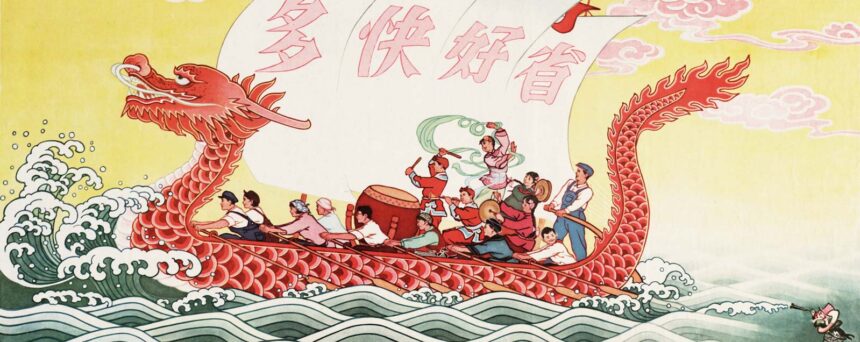Report from Financial TimesThe Beijing correspondent of the United States will have everyone in the West laughing out loud (and the Chinese, if they’re allowed to). It’s only a slight exaggeration to say that the rulers of the Western countries, and primarily the US government, are very intimidated by the Chinese government and its powerful economy, which it seems to run with its visible fist. The US government has been trying hard to change its trade policy and to support an industrial policy modeled after the Chinese model. Financial Timesreport states that China’s AI development and much more depends on “Xi Jinping Thought” (Ryan McMorrow, “China’s latest answer to OpenAI is “Chat Xi PT”” (May 22, 2024):
China’s latest large-scale language models learn from the country’s leader’s political philosophy, known as “Xi Jinping Thought on Socialism with Chinese Characteristics for a New Era,” as well as other official documents provided by the Cyberspace Administration of China.
The establishment of the LLM is the fruit of extensive efforts by Chinese authorities to promote Xi Jinping’s political, economic and cultural ideas in various forms.
The Cyberspace Administration of China (CAC), which has led the way in formulating regulations for generative AI and introducing a licensing system, requires generative AI providers to “embodied core socialist values” and that generated content “must not contain any content that subverts state power.”
The training set, reviewed by the Financial Times, draws heavily from government regulations, policy documents, state media reports and other official publications.
One of the dozens of text documents in the data package contained 86,314 mentions of Xi Jinping, including one line that read, “Let us unite more closely around the Party Central Committee with Comrade Xi Jinping as its core.”
“We must ensure that our ideology, politics and actions are always in high-level agreement with the Party Central Committee with General Secretary Xi Jinping at its core,” another person said.
What we know from history, from the Enlightenment and the invention of widespread prosperity by the Industrial Revolution, and from economic theory strongly suggests that no imperial dynasty, no Maoist ideology, no Xi Jinping ideology, no guru cult, no central committee, could produce such progress. It seems likely that poor Chinese might be forced to remain above their current relative per capita GDP (about a quarter of America’s). Joel Mokyr writes: Culture of growth (Princeton University Press, 2018) offers an interesting perspective on the requirements for general prosperity and individual liberty, which cannot be separated for long. I also discuss this issue in two short articles of my own:Fear the Leviathan of Clay” (EconLog, November 29, 2022), “Why were billionaires declared in the West?“, RegulationSummer 2023.
In a more rational future age than ours (let’s be optimistic), everyone from Mao to Xi Jinping will understand how China failed when post-imperialist states tried again to combine despotism and planning with economic growth. Think of Mao’s Great Leap Forward, conducted with the visible fist of the state. Of course, despotism can still be very dangerous to freer people in freer countries, since it diverts a significant part of the (relatively scarce) resources of its hapless peoples into military power.
******************************
For the main image of this post, I borrowed one from a great collection of propaganda posters from Mao’s Great Leap Forward (1958-1961): BG E16/33 (Chinese PosterIISH Collection); see https://chineseposters.net/posters/e16-33 and https://chineseposters.net/about/faqs#rightsIt is reproduced below.

Chinese Cultural Revolution Propaganda Poster BG E16/33 (chineseposters.net, IISH collection)







